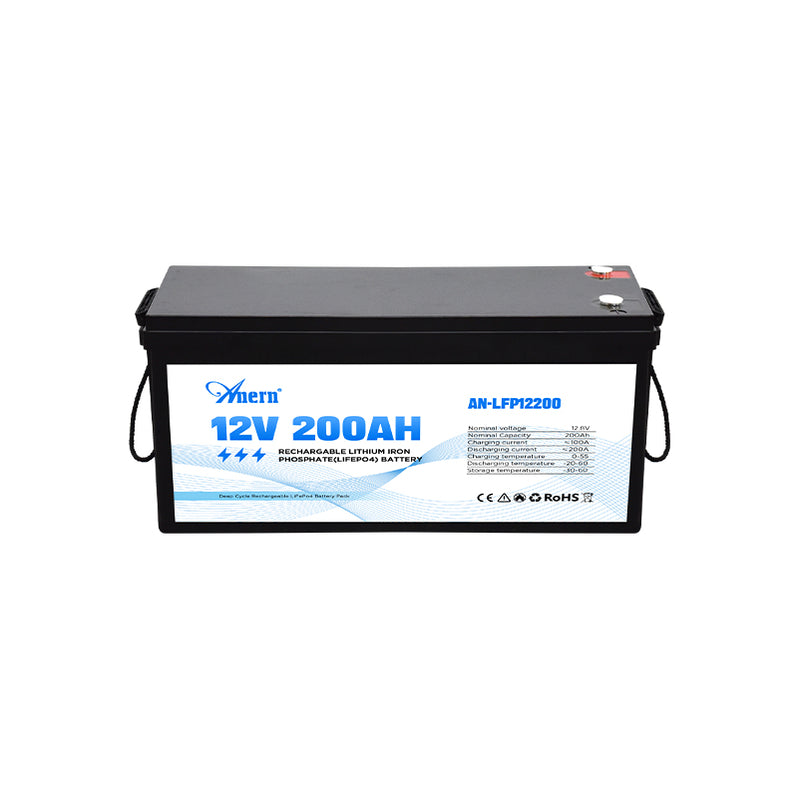Unlock the Secrets: Why 12V LiFePO4 Batteries Are Revolutionizing Power Solutions!
In the ever-evolving landscape of energy storage solutions, LiFePO4 batteries have emerged as a game-changer. Also known as Lithium Iron Phosphate batteries, they are gaining traction due to their superior safety, longevity, and efficiency. Among these, 12V LiFePO4 batteries are particularly popular, offering a reliable power source for a variety of applications. As we shift towards greener energy solutions, the interest in these batteries has surged, driven by their unique advantages over traditional lead-acid and other lithium-ion batteries. This article delves into the specifications, features, and applications of 12V LiFePO4 batteries, shedding light on why they are becoming the go-to choice for modern power needs.

Understanding LiFePO4 Technology
To appreciate the benefits of 12V LiFePO4 batteries, it's essential to understand the chemistry behind them. These batteries utilize lithium iron phosphate as the cathode material, which distinguishes them from other lithium-ion batteries that may use cobalt or manganese. The LiFePO4 chemistry offers remarkable stability, resulting in a lower risk of thermal runaway and fire hazards compared to other lithium battery types. This safety aspect is one of the primary reasons for their increasing popularity.
The operational efficiency of LiFePO4 batteries is another significant advantage. They have a high cycle life, often exceeding 2000 cycles, which means they can be charged and discharged many times before their performance diminishes. Additionally, they exhibit a flat discharge curve, ensuring consistent power output until the battery is nearly depleted. This feature is particularly beneficial in applications requiring a steady power supply, such as in renewable energy systems and electric vehicles. Overall, the combination of safety, efficiency, and longevity positions LiFePO4 technology as a leading choice for energy storage solutions.
Specifications of 12V LiFePO4 Batteries
When considering a 12V LiFePO4 battery, it's important to understand its specifications to determine its suitability for your needs. Typically, these batteries come with a nominal voltage of 12.8V, which is ideal for most applications that require a 12V power source. They are available in various capacities, commonly ranging from 20Ah to over 200Ah, allowing users to select the right size for their particular usage.
One of the standout specifications of 12V LiFePO4 batteries is their impressive cycle life, which can reach up to 5000 cycles at 80% depth of discharge. This means that they can last significantly longer than traditional lead-acid batteries, which often need replacement after just 300-500 cycles. Additionally, LiFePO4 batteries can handle higher discharge rates, making them suitable for applications that demand quick bursts of energy, such as in electric vehicles or power tools. By comparing these specifications to other battery types, it becomes clear that 12V LiFePO4 batteries offer an unmatched combination of performance and value.
Features of 12V LiFePO4 Batteries
The features of 12V LiFePO4 batteries make them particularly attractive in various applications. One of the most notable aspects is their lightweight design. Compared to traditional lead-acid batteries, which are often bulky and heavy, LiFePO4 batteries are significantly more portable, making them ideal for use in mobile applications such as RVs, boats, and camping gear. This portability is paired with fast charging capabilities, allowing users to recharge these batteries quickly, a feature that proves invaluable during short breaks or when time is of the essence.
Another impressive feature is their temperature resilience. LiFePO4 batteries can operate effectively in a wide range of temperatures, from -20°C to 60°C, without compromising performance. This makes them versatile for use in extreme conditions, whether in hot climates or during cold winters. The combination of these features not only enhances their usability but also positions them as a reliable choice for consumers looking for efficient and dependable energy solutions.
Applications of 12V LiFePO4 Batteries
The applications of 12V LiFePO4 batteries are vast and varied, reflecting their versatility. In the renewable energy sector, these batteries are often used in solar energy systems, where they store energy generated during the day for use at night. This capability is crucial for homeowners looking to maximize their solar investments and reduce reliance on grid power.
In the electric vehicle industry, 12V LiFePO4 batteries serve as auxiliary power sources, powering accessories and systems while the main battery focuses on driving. Their lightweight and high discharge rates make them an excellent choice for enhancing vehicle performance and efficiency. Additionally, they find applications in portable power solutions, such as power banks and battery packs for outdoor adventures. A friend of mine recently upgraded his camper with a 12V LiFePO4 battery system, and the difference in weight and efficiency has made a remarkable impact on his trips. He no longer worries about running out of power, and the quick charging feature has allowed him to enjoy his camping experiences to the fullest, showcasing the real-world benefits of these batteries.
Transforming Energy Storage with 12V LiFePO4 Technology
In conclusion, 12V LiFePO4 batteries are undeniably revolutionizing power solutions across various industries. Their superior specifications, lightweight design, safety features, and extensive applications make them a preferred choice for consumers and businesses alike. As we continue to seek sustainable and efficient energy solutions, the role of these batteries will only grow. Whether you are looking to power a solar system, enhance electric vehicle performance, or ensure reliable energy for outdoor adventures, considering a 12V LiFePO4 battery could be a transformative decision for your energy needs. Embrace the future of energy storage and explore the remarkable advantages that come with this innovative technology.








